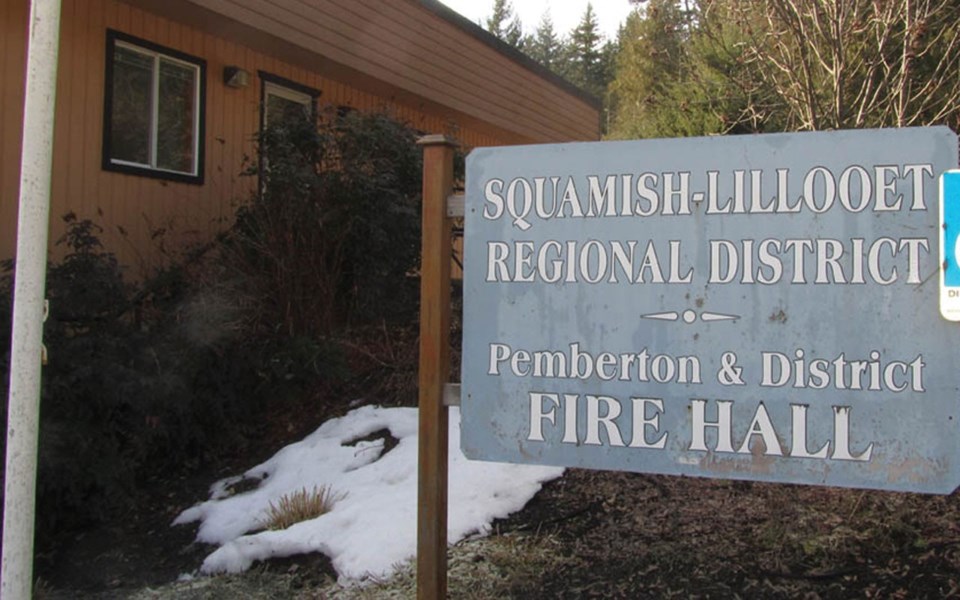Village of Pemberton (VOP) council received an information report on the Five Year Financial Plan Bylaw during a special meeting held via Zoom on April 28.
The bylaw will be up for readings and approval at the May 5 regular meeting, and should it pass, council will then be able to vote on the Tax Rate Bylaw, establishing a zero-per-cent increase in the 2020 budget.
Highlighting that, beyond including the proposed 2020 budget, the Five Year Financial Plan is by no means a locked-in budget, explained manager of finance and administration Lena Martin as she discussed the roadmap her office had compiled. It's more of a document outlining as many possible projects on the village's radar as possible, she said.
While major projects included in the five-year plan, such as a new fire truck, new fire hall and new municipal hall, may not be required in the specific five-year time frame, the plan is an acknowledgement that all will be needed at some point down the line, and it's best to start making considerations for them as early as possible.
"By planning five years into the future, we are able to look at ways of how we can support that in the future rather than coming at it in that year's budget," Martin said.
"If we need a fire truck in 2023, how are we going to accommodate that? We need to start thinking about putting away reserves now. We need to start thinking about looking at our long-term debt load.
"It's a what-if bylaw."
The VOP responded to the COVID-19 pandemic by switching course from a five-per-cent increase to proposing a zero-per-cent increase for its 2020 budget, and while there was some push from council for further adjustments down the line, Martin advised against it.
"We have already made a lot of cuts to our current budget to accommodate the current environment," she said. "The Five Year Financial Plan Bylaw is not the place to make those future decisions."
That established, however, council discussed the optics and feasibility of considering significant capital projects at a time when many local residents are likely going to be hard-pressed to pay their taxes.
Councillor Ted Craddock pitched carrying over the lean 2020 budget into 2021 and bumping back all proposed projects by a year with the potential of moving the timelines forward if possible.
"I'm a little worried about going to the community with this because it's hard to understand sometimes and if we were prudent, it might be an opportunity to say 'We can work with this next year. We can add in some of these projects that we took out,'" he said.
Coun. Amica Antonelli, meanwhile, noted that with 2021 likely going to be a challenging year for residents, the VOP may want to look at tapping into the Revenue Anticipation Borrowing Bylaw. However, Martin noted that a municipality can only borrow against a bylaw once, and can only do so again after the first debt has been fully repaid. Even if the VOP has the ability to borrow, Martin said the municipality would only be able to borrow roughly $200,000, making it far from the silver bullet it might immediately appear to be. CAO Nikki Gilmore added that the bylaw must only be used as a last resort.
"We have to use the school tax first. Then we have to use up all of our reserves. Only at that point are we allowed to borrow," Gilmore said.
Though the discussion was meant to encompass the full five years, councillors brought up the 2020 budget and current situation. Getting through the summer will be a major milestone, as the VOP is on the hook for $2.78 million for shared services, other government services paid into by all municipalities, and for passing along taxes it collects on behalf of other governments on Aug. 1, as well as school tax and police tax payments that have been postponed. Martin anticipates the VOP will have enough reserves to get through 2020, but council hopes to see provincial support for smaller municipalities come through by then.
In order to make sure the municipality is on track, mayor and council discussed attempting to hold regular check-ins to try to forecast the future, but with many ebbs and flows, Martin said there's a reason the budget talk is early in the year.
"We're going to set the budgets now. We're going to set the tax rate. It'll be July before we have our tax notice end date. It's probably going to be September before we see what's happening and what kind of tax flow we're seeing from our tax notices," she said. "We need to be able to have a lot of discussion around it in January of 2021 when we have concrete figures to look at and a reality of where we ended up at the end of the year.
"Did we make it through the year with borrowing? Did we make it through the year without a deficit?"




